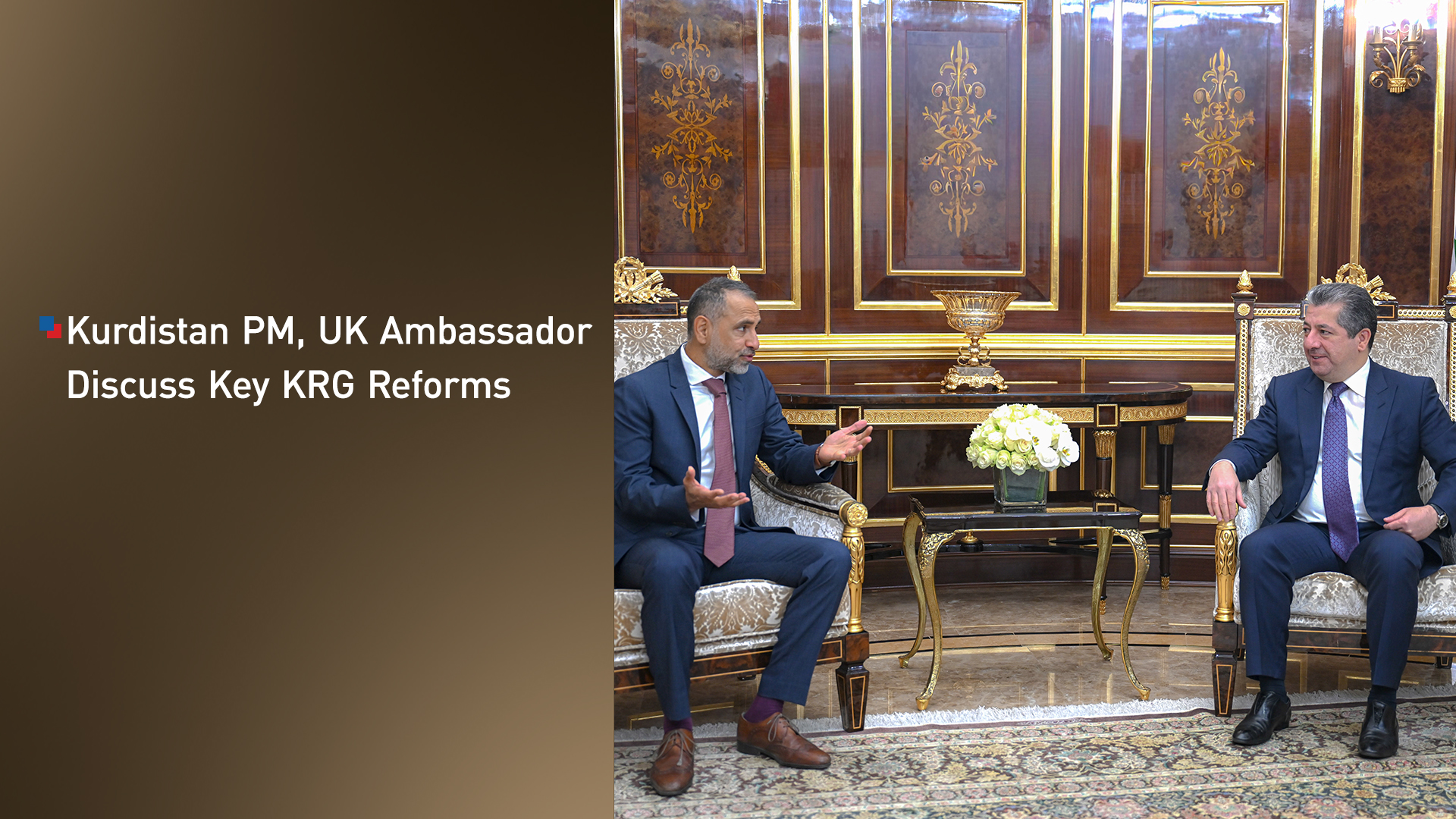Kurdistan PM, British Ambassador Discuss Financial Entitlements, Reforms, and Regional Developments
The British ambassador congratulated the Prime Minister on the progress achieved, describing the reforms as a significant step toward better governance and financial transparency.

ERBIL (Kurdistan24) — Kurdistan Region Prime Minister Masrour Barzani on Tuesday received British Ambassador to Iraq Irfan Siddiq, in a meeting that focused on constitutional rights, financial entitlements, and ongoing reform efforts within the Kurdistan Regional Government (KRG).
The meeting, attended by British Consul General in Erbil Andrew Bizley, underscored the importance of safeguarding the Kurdistan Region’s constitutional and financial rights within the framework of Iraq’s federal constitution and existing agreements.
Both sides stressed that the longstanding salary and budget disputes between Erbil and Baghdad must be resolved fundamentally, not politically, to ensure fairness and stability for the people of Kurdistan.
Prime Minister Barzani and Ambassador Siddiq also discussed the recent trilateral agreement regarding the resumption of Kurdistan’s oil exports.
The KRG Prime Minister emphasized that the deal should serve as a foundation for passing a comprehensive oil and gas law in the upcoming session of the Iraqi Parliament — a key step toward resolving the legal uncertainty surrounding energy management and revenue sharing in Iraq.
In another part of the meeting, Barzani highlighted his government’s ongoing reform agenda, particularly the successful implementation of the “Runaki" project that provides 24-hour electricity, and “My Account” initiatives, which aim to modernize the public payroll system and enhance accountability across government institutions.
The British ambassador congratulated the Prime Minister on the progress achieved, describing the reforms as a significant step toward better governance and financial transparency.
The two officials also exchanged views on Iraq’s political situation and the upcoming parliamentary elections, as well as broader regional developments.
The discussion reaffirmed the strong partnership between the Kurdistan Region and the United Kingdom in promoting stability, institutional reform, and economic modernization across the region.
The Kurdistan Region and the United Kingdom have maintained a longstanding partnership spanning political, economic, and security cooperation. The UK was among the first international partners to engage with the KRG following its establishment after the 1991 Gulf War and has consistently supported the region’s constitutional rights within Iraq’s federal system.
British diplomats have played a key role in mediating disputes over budget allocations, public sector salaries, and oil revenue-sharing, emphasizing institutional and legal solutions over political ones.
Security ties have been a cornerstone of the relationship, particularly during the fight against ISIS, when the UK provided arms, intelligence, and training to the Peshmerga.
British assistance has also extended to humanitarian support for displaced populations and advisory programs to strengthen governance and transparency.
Economic and trade cooperation has grown, with UK investments in energy, infrastructure, and technology projects supporting development and job creation.
The UK has backed the KRG’s reform agenda, including initiatives to modernize financial management, combat corruption, and enhance public sector accountability.
Educational and cultural exchanges further strengthen the partnership, fostering skilled professionals and promoting mutual understanding.
Seen by the UK as a stable and reliable partner in a turbulent region, the Kurdistan Region values Britain’s diplomatic support and technical assistance. Today, both sides continue to deepen their collaboration, focusing on fair budget allocation, institutional reforms, energy legislation, and regional security challenges, making the KRG-UK relationship one of the most enduring and multifaceted partnerships in Iraq.